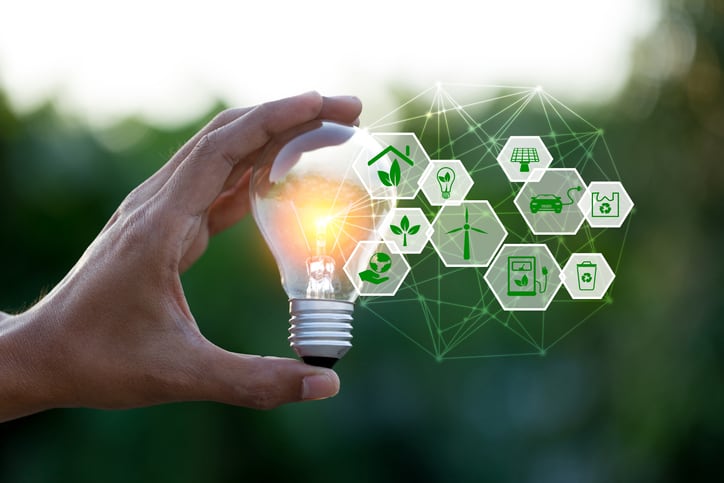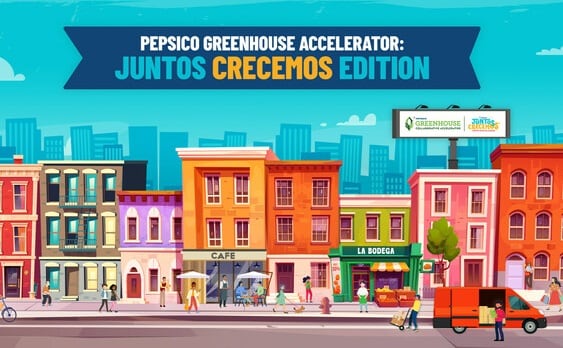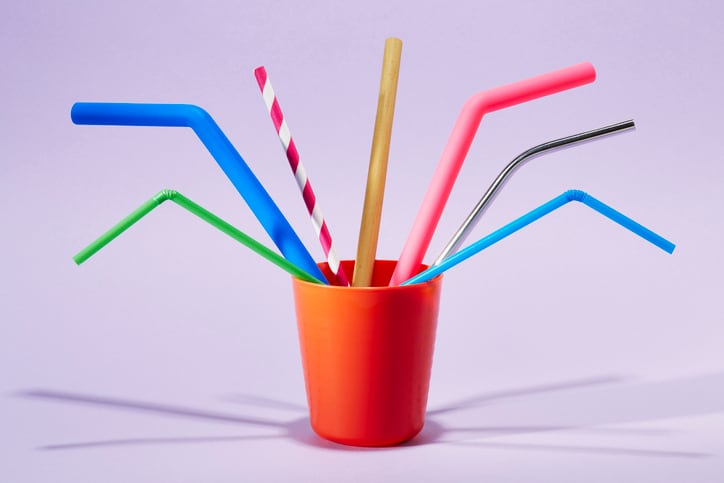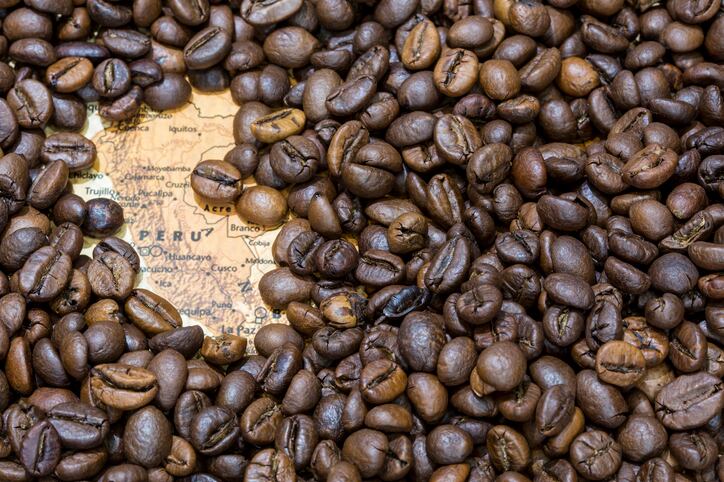The initial launch takes place in the US with plans to expand the program to key global markets by 2024.
“With the launch of Partners for Tomorrow, PepsiCo is proud to continue to assist and support customers as they look for custom solutions to achieve their own sustainability goals,” says PepsiCo.
Platform of ideas
So what does that mean? Under the program, PepsiCo will champion its ‘comprehensive customer sustainability offerings’ on a single platform, then work with customers to help them implement the initiatives.
That could mean, for example, that a customer can sign up to on-demand collection of recyclable beverage containers: which PepsiCo can process to create recycled PET packaging.
In regenerative agriculture, PepsiCo customers can make direct investments in efforts to convert agricultural land to regeneratively farmed acreage.
PepsiCo notes that – as with all sustainability efforts – projects become more effective and meaningful when implemented at scale between multiple partners: championing a long history of working with partners on shared sustainability goals.
“The Partners for Tomorrow platform aims to scale those solutions to foster the most effective partnerships and longstanding impact," said Todd Squarek, Senior Vice President, Chief Sustainability Officer for PepsiCo Beverages North America.
"With this platform we're leveraging the shared scale of PepsiCo's and our customers' businesses to maximize impact, drive progress toward our pep+ goals, and benefit both our businesses, the planet and the communities we serve."
At launch, Partners for Tomorrow programs include:
- CIRQU (formerly known as BottleLoop): CIRQU includes the on-demand collection of recyclable beverage containers for foodservice and retail customers, which are then processed and reclaimed by PepsiCo to become recycled PET packaging. PepsiCo Beverages North America (PBNA) has partnered with Replenysh to make it easy and free for its customers to help ensure that plastic, glass, and aluminum containers are collected and recycled and that the recycled materials are integrated into the supply chain to be reused. The program expanded to serve five times as many communities in 2022, compared to 2021. There are currently over 250 host locations actively collecting material across 10 states and 58 communities.
- Reusable Cup Solutions: PepsiCo is piloting several reusable cup solutions with partners in select markets in support of its goal to have 20% of all beverage servings it sells delivered through reusable models by 2030.
- Working with TURN, the system features gamification to incentivize event attendees to return the reusable cups after use.
- Regenerative Agriculture: A Regenerative Agriculture program, which PepsiCo is calling sow+ Agriculture (Sow Positive Agriculture), is designed to enable PBNA and PFNA customers to make direct investments in efforts to convert agricultural land to regeneratively farmed acreage and to allow PepsiCo and its suppliers to drive progress toward regenerative agriculture goals. That will help them convert land to practices that help improve soil health, reduce erosion, and improve water quality.
- The program also provides a forum for convening industry influencers to discuss concepts, trends, opportunities, and risks around regenerative farming.
- North America Customer Sustainability Summit: PepsiCo's annual North America Customer Sustainability Summit will feature internal and external thought leaders.
- pep+ REnew: Launched in 2022, the pep+ REnew collaboration increases value chain partner access to renewable electricity as part of PepsiCo's goal to achieve net-zero emissions by 2040.
- "Because many small and medium businesses face challenges when trying to participate in the renewable electricity market, pep+ REnew is designed with two goals: to educate PepsiCo's value chain partners about their renewable electricity choices, and to quicken the transition to renewable electricity through aggregate power purchase agreements (PPAs) and other renewable electricity procurement options," says PepsiCo.
Supply chain efforts
Partners for Tomorrow is one of the ways PepsiCo is working towards multiple pep+ sustainability goals. Its pep+ climate strategy focuses on everything in its supply chain, including manufacturing, agriculture, packaging, transportation, vending and cooling equipment.
Some of PepsiCo's key projects include:
- Fleet Electrification: PepsiCo is implementing a fleet of electric vehicles at its facilities that aim to help reduce emissions on the journey to net zero. FLNA and PBNA received the first deliveries of Tesla electrified semi vehicles at their respective facilities in Modesto and Sacramento. FLNA and PBNA are further electrifying facility infrastructure, by rolling out electric forklifts, route trucks, service vans, and yard tractors.
- Manufacturing and Fleet Excellence: Frito-Lay has nearly completed its 500,000-square feet facility in Modesto, California which is a 'first-of-its-kind showcase for sustainable manufacturing, warehousing, and distribution technologies'. This includes replacing diesel fleet assets with Zero Emissions (ZE) and Near Zero Emissions (NZE) alternatives, installing fueling and charging infrastructure for the new fleet, and on-site renewable energy generation and storage. To date, the Modesto transformation has resulted in a 91% reduction in greenhouse gas (GHG) emissions from the facility's direct fleet operations, says PepsiCo.
- Scheduled to open within the next year, PBNA's new Denver manufacturing facility aims to become net water positive, with a first-of-its-kind advanced water recycling system and robust replenishment in the local watershed. It also aims to achieve 100% renewable electricity, leveraging both solar and innovative biogas technologies.
- rPET: In 2023, PBNA is working to increase rPET used across several beverage brands including offering Pepsi, Mtn Dew and Aquafina products in bottles made from 100% rPET in multiple U.S. geographies. PepsiCo estimates that shifting to bottles made from 100% rPET reduces GHG emissions by approximately 30% per bottle. By 2030, the entire Pepsi-branded portfolio aims to phase-out bottles made from virgin plastics.
- Regenerative Agriculture Partnerships: Recently PepsiCo announced an investment in long-term, strategic partnerships with three farmer-facing organizations – Practical Farmers of Iowa, Soil and Water Outcomes Fund, and the IL Corn Growers Association - that are designed to drive adoption of regenerative agriculture practices across the United States.




